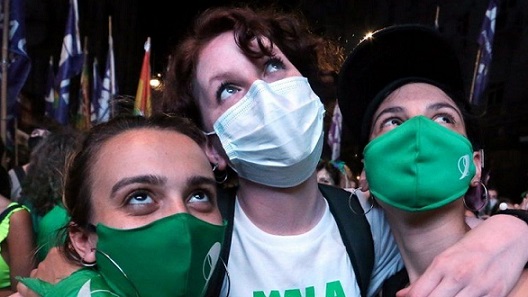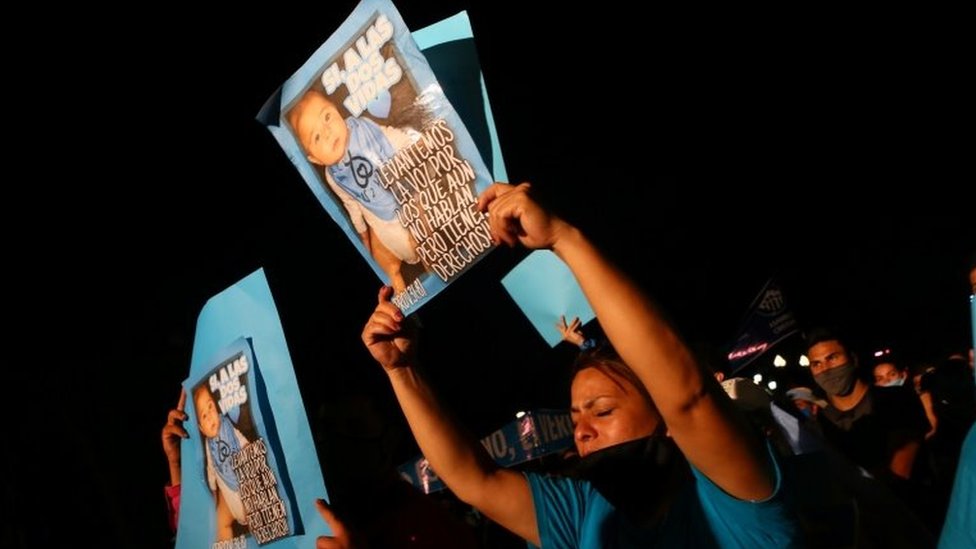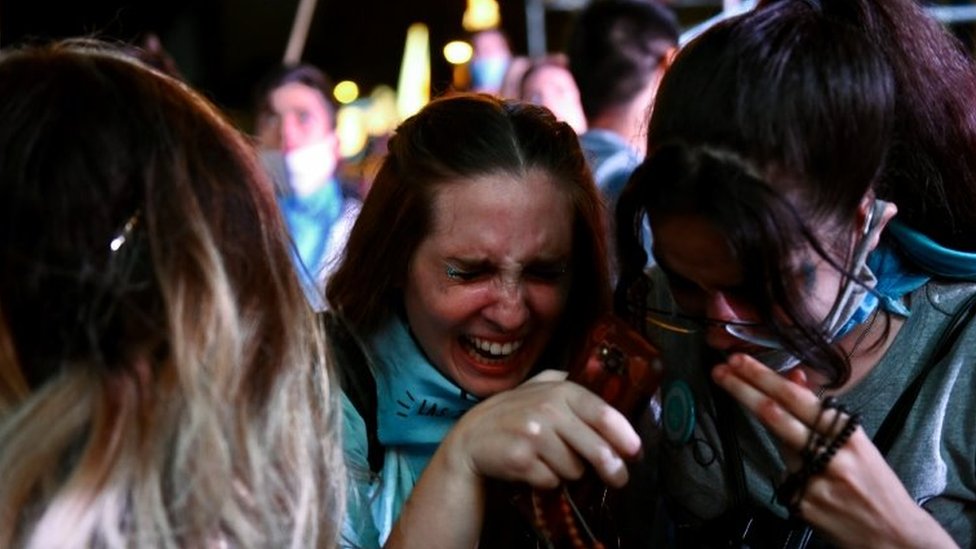
Argentina’s Congress has legalised abortions up to the 14th week of pregnancy, a ground-breaking law for a region that has some of the world’s most restrictive termination laws.
Senators voted in favour of the bill after a marathon session with 38 in favour, 29 against and one abstention.
Until now, abortions were only permitted in cases of rape or when the mother’s health was at risk.
The bill had been approved by the Chamber of Deputies earlier this month.
The Catholic Church, which remains highly influential in Latin America, had opposed the move, calling on senators to reject the bill.
Pro-choice activists hope the passing of the law in Argentina – one of the largest and most influential countries in Latin America – will inspire other countries to follow suit.
Long fought for change
Activists have campaigned for a change in the law for years. The passing came two years after senators narrowly voted against legalising abortion.


President Alberto Fernández, who supported the bill, had made reintroducing it one of his campaign promises. “I’m Catholic but I have to legislate for everyone,” he argued.
President Fernández also said that providing free and legal abortions up to the 14th week of pregnancy was a matter of public health as “every year around 38,000 women are taken to hospital due to (clandestine) abortions and since the restoration of democracy (in 1983) more than 3,000 have died”.
After the vote, he said: “Today, we’re a better society.”
Emotional debate
Large crowds of campaigners both for and against abortion had gathered outside Congress in the capital Buenos Aires.
They followed the debate on huge screens. When the vote finally happened in the early hours of Wednesday, there was jubilation in the pro-choice camp.

The vote had been predicted to be extremely tight but in the end, all four senators who had said they were undecided, voted in favour of the legislation after a 12-hour debate.
Senator Silvina García Larraburu voted against the bill in 2018 but backed it this time. Speaking during the debate she explained why. “My vote is in favour of free women, of women who can decide according to their own conscience,” she said coming close to tears.
Anti-abortion activists, who followed the proceedings but were separated from pro-choice activists by barriers, were dejected.

“The interruption of a pregnancy is a tragedy. It abruptly ends another developing life,” said Inés Blas, a senator who voted against the law.
But Argentina’s Women’s Minister, Elizabeth Gómez Alcorta, said that “we’re making history” and many of the pro-choice activists said they hoped it would set a signal for other lawmakers across Latin America.
Abortions are completely banned in El Salvador, Nicaragua and the Dominican Republic and only allowed in certain restricted circumstances in most other Latin American nations.
In the wider region, only Uruguay, Cuba, Guyana and parts of Mexico currently allow women to request an abortion, with varying limits on the number of weeks of pregnancy in which an abortion is legal.
Source: bbc.co.uk






Be the first to comment